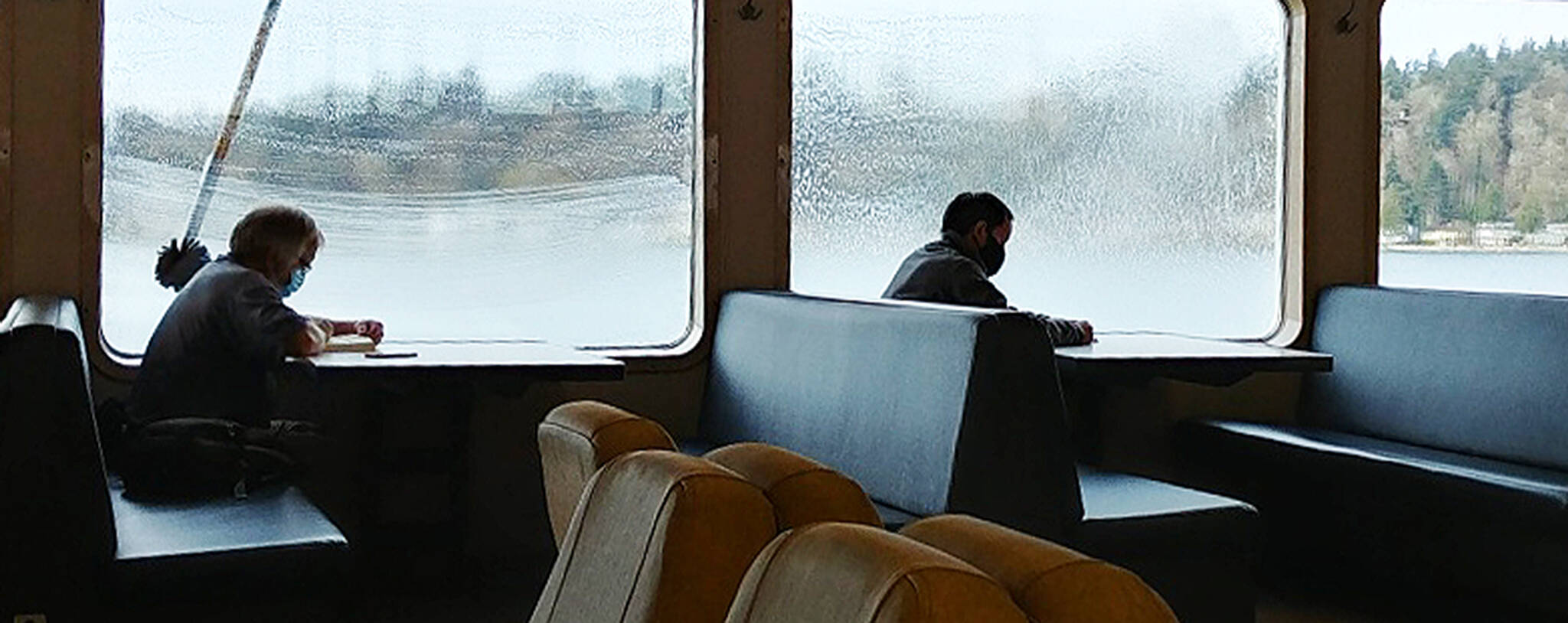The state legislature’s 16-year “Move Ahead Washington” package of transportation projects will provide the Washington State Ferries system with much-needed improvements.
The 10 percent of the “package” that’s going to Ferries includes four hybrid ferries at about $200 million per boat. That’s compared to $160 million for the non-hybrid version. At $1.45 million per car space, the new hybrids will cost twice what BC Ferries’ comparable Salish class boats cost.
The estimated timeline to build four boats is 2031. After that WSF will still need 11 more by 2040. Mission Impossible? Maybe not. If WSF could use an out-of-state shipyard (e.g., Halter in Mississippi) the boats could be built in two years.
Move ahead funding “packages” are usually funded with a gas tax. This time one-third comes from a carbon tax. 40 percent is split between federal funding and transfers from non-transportation accounts and 18 percent comes from vehicle-related fees.
After 20 years waiting, there’s $18 million to move Highway 104, and its ferry traffic, over to 1st Street in Kingston. A $1.2 million federal grant for an automatic boarding pass dispenser at Lindvog is also in the works. Taken together the two projects should mostly solve that downtown traffic congestion.
Ferries was given $484,000 “solely” for Kingston’s 2021-23 traffic control. Subtracting what’s been spent, that should leave about $300,000 for the next 12 months. If not repurposed, that would pay for upgrading summer and holiday traffic control from two to three officers: one at west Kingston, another at Lindvog and a rover in between.
Three officers are needed to meet the legislation’s requirements of “holding traffic on the shoulder at Lindvog Road until space opens for cars at the tollbooths” and the “management of traffic … to ensure Kingston residents and business owners have access to businesses, roads and driveways.” There’s also enough for traffic control on summer Mondays and single-boat service backups.
Other budget adjustments mostly deal with addressing crewing issues. However, WSF’s inability to readily move crew between boats and routes still hinders service restoration. There’s also $10 million that may sustain Tillikum and a 21-boat fleet up to 2023. However, according to Kingston ferry expert Rex Carlaw, without more funding, “Tillikum is toast. I think it’s wishful thinking to expect she’ll be retained.”
The Supers and Issaquah-class vessels will more than take that little bit of extra funding since they seem to have been poorly built and need a lot of maintenance all the time. If Elwha, which was the darling of the Supers, was pulled from service, even though she was the only one that had a complete mid-life, what will happen when something major is found on Kalateen or Yakima?”
Free ride
Anyone 18 and under (drive-on and walk on) will be riding for free, thanks to the legislature.
Look for driver seat swapping at the toll booths and for ferry riding to return as an after-school and summer pastime.
No more cut-in-line hotline
The state Department of Transportation has decided the line-cutter hotline has “served its purpose, and it just isn’t needed anymore.”
If that purpose was only to give line-cutters a scold letter then DOT was right.
Line-cutting still carries a $139 fine but only if a state trooper sees it.
Walt Elliott writes a column on Washington State Ferries for this newspaper.


